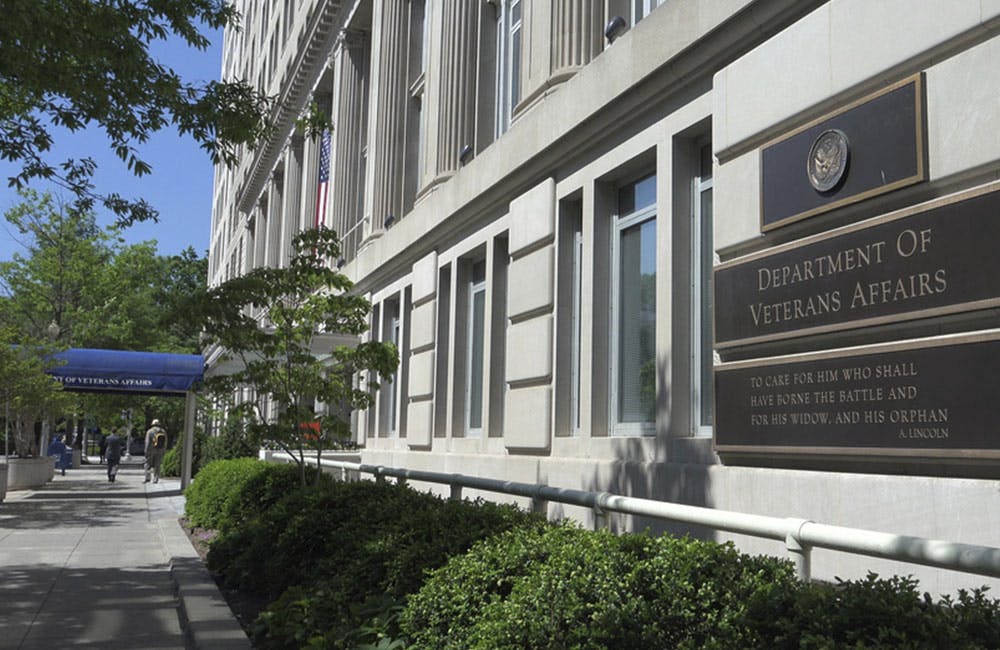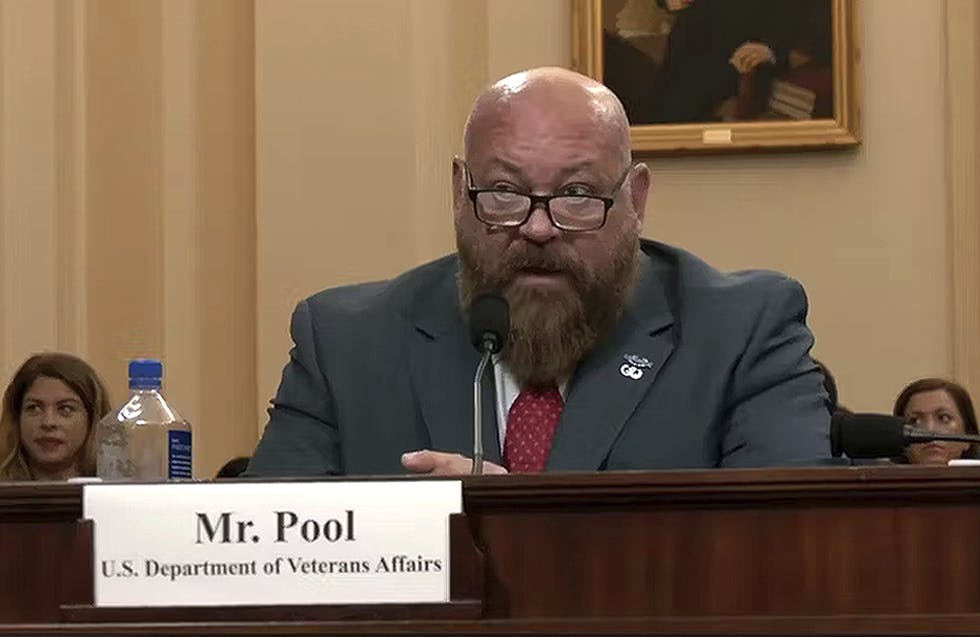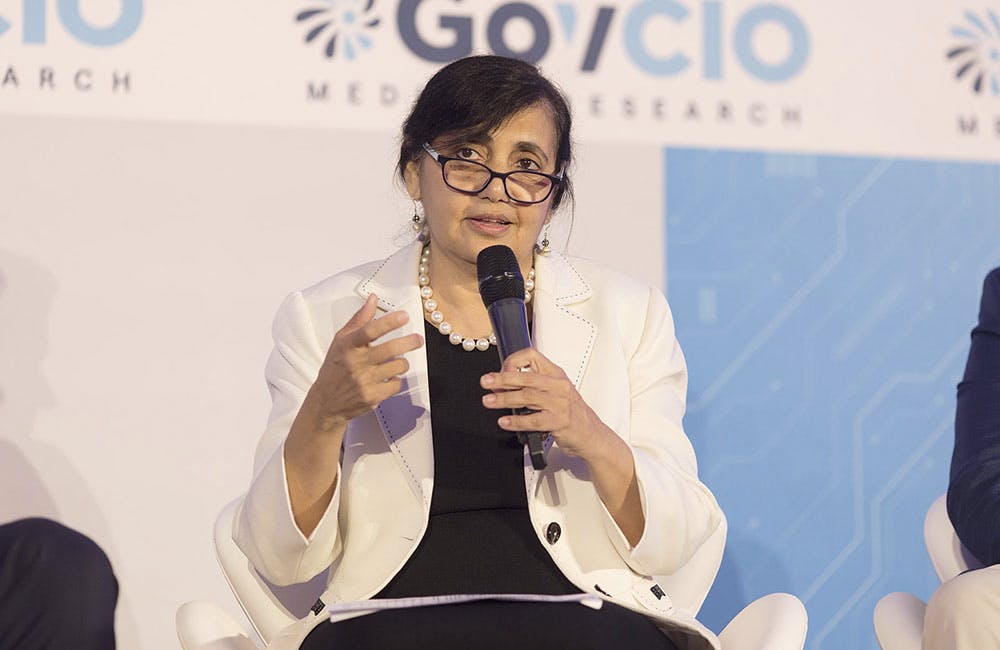DOD’s Next Steps for 5G Military Deployment
The Defense Department is prototyping a series of 5G technologies across its bases to advance areas including telemedicine.

The Defense Department is in the process of large-scale prototyping of 5G networks and technologies and most recently announced a series of experiments to further these efforts, DOD Technical Director for 5G Joseph Evans said during a Thursday ACT-IAC webinar.
DOD has a three-pronged approach to its next-generation connectivity, Evans said. The first is to accelerate the pace of 5G adoption, second to make breakthroughs in the use of 5G and finally to innovate toward the future of “next-generation G” networks.
Toward this goal, Evans reported progress that DOD made last year in 5G deployment, which included turning five military bases into “digital bases,” some of which now enable capabilities like dynamic spectrum sharing, combined air operations, augmented reality and virtual reality combat training, as well as “smart warehouse” efforts.
Last month, DOD began its next wave of 5G deployments across more bases by implementing new experiments of next-generation connectivity across the department, marking the department’s most recent 5G growth efforts in.
“Number one is enhancing aircraft mission readiness at Joint Base Pearl Harbor,” Evans said. “The idea there is to move data, massive data, quickly from aircraft, both for maintenance and permission, support and versatile use.”
Evans further highlighted that DOD aims to deploy 5G at Joint Base San Antonio to support improved augmented reality medical training and the data required to enhance telemedicine capabilities.
“The idea there is so that medical personnel in the field can reach back to experts and specialists at hospitals and so forth to help with treatment at the front lines,” Evans said of telemedicine. “We’ve seen a lot of use of that technology because of COVID-19, and we’re aiming to improve that performance using some of the features of 5G, which will allow better video, low latency interactions.”
At Joint Base San Antonio, DOD is also working on a 5G core security experimentation network, connecting the base with other remote sites to allow Evans’ team to evaluate the security and interoperability of the military’s 5G backbone networks.
DOD is also prototyping wireless connectivity across tactical operation centers, including at the Fort Irwin National Training Center and Camp Pendleton.
“The idea there is to get rid of all the red and green wires that you find in combat operation centers and replace those with wireless technology that improves mobility,” Evans said.
The final recently announced 5G experiment is to test bidirectional spectrum sharing between DOD and commercial communication systems, an effort that is taking place at Tinker Air Force Base. Evans said that this will enable greater collaboration with the commercial sector, acknowledging that industry partners will be critical in current and future 5G deployments.
“DOD recognizes that industry is driving 5G technology with massive investments,” Evans said. “The projections on capital expenditure in the U.S. in 2025 is about $350 billion. … It’s quite clear that industry is driving this technology, and because of that DOD needs to work more closely with our industry partners.”
Evans added that in the coming weeks, DOD will issue requests for proposals through the National Spectrum Consortium and Information Warfare Research Program so that industry partners can help the department execute and develop its new 5G experiments.
This is a carousel with manually rotating slides. Use Next and Previous buttons to navigate or jump to a slide with the slide dots
-

VA's Platform One Powers Rapid Innovation to Bolster Digital Services
VA's Platform One accelerates software development timelines from weeks to hours, ultimately enhancing digital services for veterans.
5m read -

Federal Leaders Receive Federal IT Efficiency Flywheel Awards from GovCIO Media & Research
Five federal IT leaders received Flywheel Awards for driving innovation and modernizing technology at the Federal IT Efficiency Summit.
5m read -

Doing More with Less is Muscle Memory for IRS, Former Deputy CIO Says
Darnita Trower discusses her experience, the legacy she’s left behind and how she pushed the IRS to modernize itself,
20m watch -

Opinion: Original Intelligence Is the Missing Piece for AI Transformation
Limitations of AI agents and development drive growing needs for workforce development and "original intelligence."
3m read -

VA CIO Targets Modern IT and Smarter Workforce Alignment
Agency leaders told lawmakers they are focused on trimming legacy systems and restructuring its workforce to streamline operations.
3m read -

Pentagon's $200M AI Contracts Signal Broader Effort to Transform Talent
The Army is leveraging Silicon Valley, reservist programs and new hiring strategies to integrate critical digital skills in its ranks.
5m read -

AI Foundations Driving Government Efficiency
Federal agencies are modernizing systems, managing risk and building trust to scale responsible AI and drive government efficiency.
43m watch -

Inside DOD’s Push to Grow the Cyber Workforce Through Academia
Diba Hadi gives her first interview since becoming principal director of the DOD’s Cyber Academic Engagement Office.
15m listen -

Agencies Tackle Infrastructure Challenges to Drive AI Adoption
Federal agencies are rethinking data strategies and IT modernization to drive mission impact and operational efficiency as new presidential directives guide next steps.
5m read Partner Content -

Generative AI Demands Federal Workforce Readiness, Officials Say
NASA and DOI outline new generative AI use cases and stress that successful AI adoption depends on strong change management.
6m read -

The Next AI Wave Requires Stronger Cyber Defenses, Data Management
IT officials warn of new vulnerabilities posed by AI as agencies continue to leverage the tech to boost operational efficiency.
5m read -

Federal CIOs Push for ROI-Focused Modernization to Advance Mission Goals
CIOs focus on return on investment, data governance and application modernization to drive mission outcomes as agencies adopt new tech tools.
4m read
















